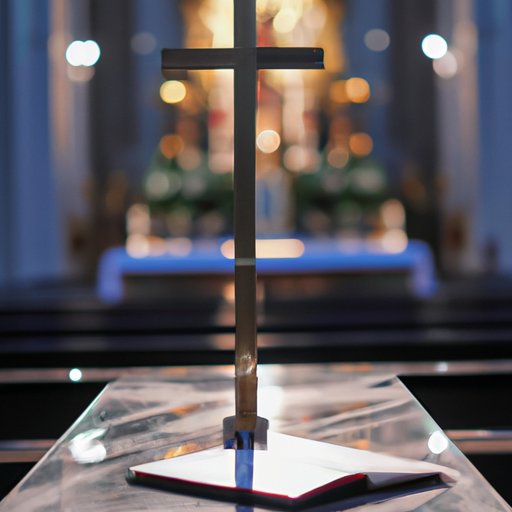Exploring Catholicism: A Journey Through Rich History, Contemporary Society and Popular Culture
Catholicism, the world’s largest religion with over 1.3 billion followers, is known for its rich history, diverse theology, and strong commitment to social justice. From the earliest days of Christianity, the Catholic Church has played a pivotal role in shaping not only religious beliefs but also global politics and culture. Whether you are a practicing Catholic, a curious individual or simply an inquisitive observer, this article will provide an insightful journey into the world of Catholicism.
The Rich History and Theology of Catholicism
Catholicism has a rich history that dates back over two thousand years. It originated in the Mediterranean region and was shaped by cultural, social, and political forces that influenced the rise and spread of Christianity. Throughout its history, the Catholic Church has developed complex theological traditions, rich symbolism, and a broad range of religious practices.
Central to the Catholic faith is the belief in the Holy Trinity – one God in three persons: Father, Son, and Holy Spirit. Catholics also believe in the communion of saints, the authority of the papacy, the seven sacraments, and the importance of prayer and spiritual devotion. The Catholic liturgy, a structured form of worship that includes the Mass and the sacraments, is central to Catholic practice.
Catholicism has also had a profound impact on art, architecture, music, and literature. From the expansive cathedrals of Europe to the music of Bach and Mozart, Catholicism has inspired some of the world’s greatest artistic achievements.
The Role of the Catholic Church in Contemporary Society
Today, the Catholic Church is a global institution with a complex set of roles and responsibilities. Catholic social teaching, a body of Church teaching on social justice and the common good, has played a major role in shaping the Church’s contemporary mission. Catholic organizations and individuals are leading efforts to address poverty, social inequality, and environmental degradation around the world.
The Catholic faith also provides guiding principles for moral and ethical decision-making. Catholics are called to respect human dignity, promote the common good, and work for peace and justice. These values inform the Church’s stance on issues such as abortion, euthanasia, and capital punishment.
Notable Catholic Saints and Their Contributions
Over the centuries, numerous individuals have led exemplary lives of faith and service, becoming known as saints in the Catholic Church. These saints form an important part of Catholic tradition and provide inspiration for Catholics around the world.
St. Francis of Assisi, known for his love of nature and commitment to poverty, is one of the most beloved and influential saints. Mother Teresa, who ministered to the sick and dying in Calcutta, and St. Thomas Aquinas, a scholar and theologian, are also widely revered.
Being a Catholic Today
Today, the Catholic Church faces numerous challenges and opportunities. The laity, or members of the Church who are not clergy or in religious life, play a key role in shaping the Church’s mission and direction. Catholic organizations and movements such as Catholic Relief Services and Catholic Worker continue to provide assistance to those in need.
However, the Church is not without its controversies, including the ongoing issue of sexual abuse by clergy members. Catholics are grappling with how to reconcile their faith with the challenges of a rapidly changing world.
Catholicism in Popular Culture
Catholicism has long been a fertile source of inspiration for popular culture. From the works of Shakespeare to the music of U2, Catholic themes have been explored in a wide range of art forms. Films like The Godfather and The Exorcist have also depicted Catholicism in various ways.
Contemporary Catholic writers such as Flannery O’Connor and Graham Greene continue to grapple with the complexities of faith and morality.
Conclusion
Catholicism is a complex and multifaceted religion that has played a significant role in shaping global history and culture. From its rich theological traditions to its commitment to social justice, Catholicism provides a framework for understanding the human experience. Whether you are a practicing Catholic or simply interested in learning more about the faith, exploring Catholicism offers insights into the challenges and opportunities facing our world today.
